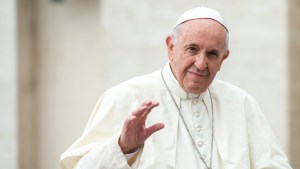Lenten Campaign 2025
This content is free of charge, as are all our articles.
Support us with a donation that is tax-deductible and enable us to continue to reach millions of readers.
On March 26, 2023, the Scandinavian Bishops’ Conference published a pastoral letter on human sexuality reaffirming “traditional Christian teaching” on the subject. While defending the “integrity of personhood” the letter explains the Church is ready to “embrace and console all who experience hardship” in a world where sexuality and identity have been defined in various ways.
“Notions of what it is to be a human, and so a sexual being are in flux. What is taken for granted today may be rejected tomorrow. Anyone who stakes much on passing theories risks being terribly hurt,” the letter explains. “We need deep roots. Let us, then, try to appropriate the fundamental principles of Christian anthropology while reaching out in friendship, with respect, to those who feel estranged by them. We owe it to the Lord, to ourselves, and to our world, to give an account of what we believe, and of why we believe it to be true.”
The letter was signed by eight bishops who make up the Scandinavian Bishops’ Conference, including Cardinal Anders Arborelius, Bishop of Stockholm, Sweden. This body represents seven dioceses spread out across Norway, Finland, Sweden, Iceland and Denmark in Northern Europe. Together these five countries count for around 250,000 Catholics.
“The point of the Church’s teaching is not to curtail love but to enable it,” the letter states.
God’s rainbow
The Bishops’ letter begins by recalling the aftermaths of the flood described in the Book of Genesis. In a “world washed clean” God made a “covenant” with man, symbolized in the image of a rainbow.
“This covenantal sign, the rainbow, is claimed in our time as the symbol of a movement that is at once political and cultural,” the letter notes, recognizing the “noble” aspects of this movement’s aspirations. “In so far as these speak of the dignity of all human beings and of their longing to be seen, we share them. The Church condemns unjust discrimination of any kind, also on the basis of gender or orientation.”
However the Bishops express their dissent to “a view of human nature that abstracts from the embodied integrity of personhood, as if physical gender were accidental.”
They also oppose the imposition of this view on children, “as if it were not a daring hypothesis but a proven truth,” as this is “a heavy burden of self-determination for which [minors] are not ready.”
“God made man in his own image”
To develop this idea of the covenant between God and man, the letter then goes on to underline how “God made man in his own image” (Genesis 9: 6) and this “does not just refer to the soul” but also to the body, which is “intrinsic to personhood.”
“It is curious,” the bishops say: “Our intensely body-conscious society in fact takes the body lightly, refusing to see it as significant of identity, supposing that the only selfhood of consequence is the one produced by subjective self-perception, as we construct ourselves in our own image,” the letter explains.
Additionally the Bishops emphasize how “the image of God in human nature manifests itself in the complementarity of male and female” and that the marriage of man and wife represents “an image of God’s communion with mankind.”
Accepting ourselves and God’s design for us is not without difficulties
However, the Nordic prelates acknowledge that accepting this type of union is not “easy or painless” and for some “it seems an impossible option.”
“More intimately, the integration within ourselves of masculine and feminine characteristics can be hard. The Church recognises this. She wishes to embrace and console all who experience hardship,” the letter recognizes.
Citing St. Paul’s letter to the Corinthians, “By God’s grace I am what I am” (15, 10), the Bishops highlight that even Paul had to “battle with himself to make this statement of faith.” They explain that we have to engage in this battle as well, to avoid focusing solely on what we believe is missing from our lives.
“The journey to self-acceptance passes through engagement with what is real. The reality of our lives embraces our contradictions and wounds. The Bible and the lives of saints show that our wounds can, by grace, become sources of healing for ourselves and for others,” the letter says.
The Bishops also write that while God’s mercy “excludes no one,” it “sets a high ideal” spelled out in the commandments. “In all of us there are elements of chaos that need to be ordered,” the letter states.
The letter gives the example of how Catholics in certain contexts are unable to receive the sacraments for some time. However, the Nordic prelates emphasize that this is not a form of punishment or exclusion but insist that the “experience of internal exile embraced in faith can lead to a deeper sense of belonging.”
“Each of us has an exodus journey to make, but we do not walk alone,” they write.
The Church is here “to accompany all”
“As your bishops we stress this: We are here for everyone, to accompany all,” the letter underlines. “Our mission and task as bishops is to point towards the peaceful, life-giving path of Christ’s commandments, narrow at the outset but growing broader as we advance. We would let you down if we offered less; we were not ordained to preach little notions of our own.”
“The yearning for love and the search for sexual wholeness touch human beings intimately. In this area we are vulnerable. Patience is called for on the path towards wholeness, and joy in every forward step,” the Bishops write, acknowledging that “every search for integrity is worthy of respect, deserving of encouragement.”
In fact the Nordic prelates offer some “friendly” advice to those “perplexed by traditional Christian teaching on sexuality.”
They encourage them to get familiar with “Christ’s call and promise” by taking part in the Church’s life fully through liturgy, prayer, reading the Scripture etc. Additionally, they call on them to “consider the limitations of a purely secular discourse on sexuality.”
God’s covenant “calls us to seek the sense of our existence, not in fragments of the rainbow’s light, but in the divine source of the full, gorgeous spectrum, which is of God and calls us to be God-like.”



